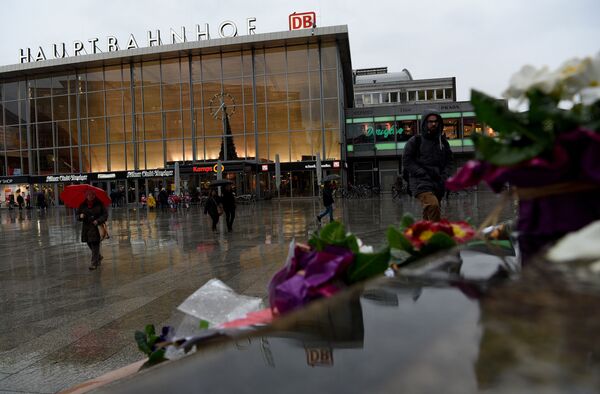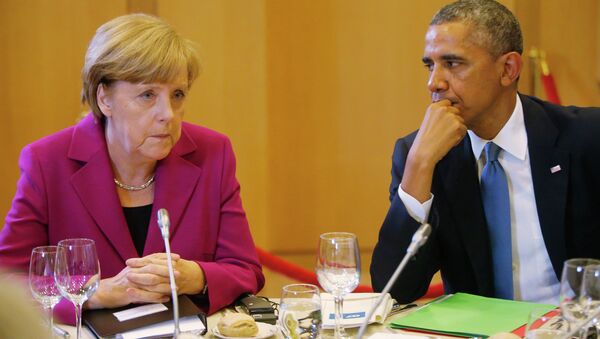"In the last few years, many in the Unites States have looked across the Atlantic with admiration and respect," DW's foreign correspondent in Washington observed.
Enthusiasm for Germany led by Angela Merkel was at an all-time high when an unprecedented wave of refugees rushed into Europe last year. Berlin's open door policy towards asylum seekers and the way ordinary Germans welcomed newcomers, according to the journalist, reminded the Americans of themselves. At the time, they viewed the Germans as "humane and hospitable" people, who were eager to help those in need.

They also prompted many in the US to reconsider their stance on Germany. Conservative American author Ross Douthat proclaimed that the leading European country was "on the brink" in a recent opinion piece for the New York Times. The Wall Street Journal pointed out that Merkel's refugee policy drew "fire at home and abroad."
True, the refugee crisis, particularly after the night of terror in Paris on November 13 and the Cologne attacks, has become the greatest challenge for the German political leadership. Merkel's government is divided over how to handle newcomers.
For instance, the Christian Social Union in Bavaria (CSU), the sister party of Merkel's Christian Democratic Union (CDU), has called on the chancellor to introduce a cap on the number of refugees allowed to enter the country – an idea Merkel opposes.

Germany received approximately 1.1 million refugees in 2015 – a record for the country of 81 million people and Europe.
However, the interest that Germany's handling of the refugee crisis sparked in the US reflects America's own concerns with immigration. These worries have been highlighted during the presidential election campaign.
"Germany may be once again divided over the immigration policy, but it happened in the United States a long time ago," Schliess observed. "And the fear that political radicalization in Germany and Europe would deepen the divide on the other side of the Atlantic is justified."



